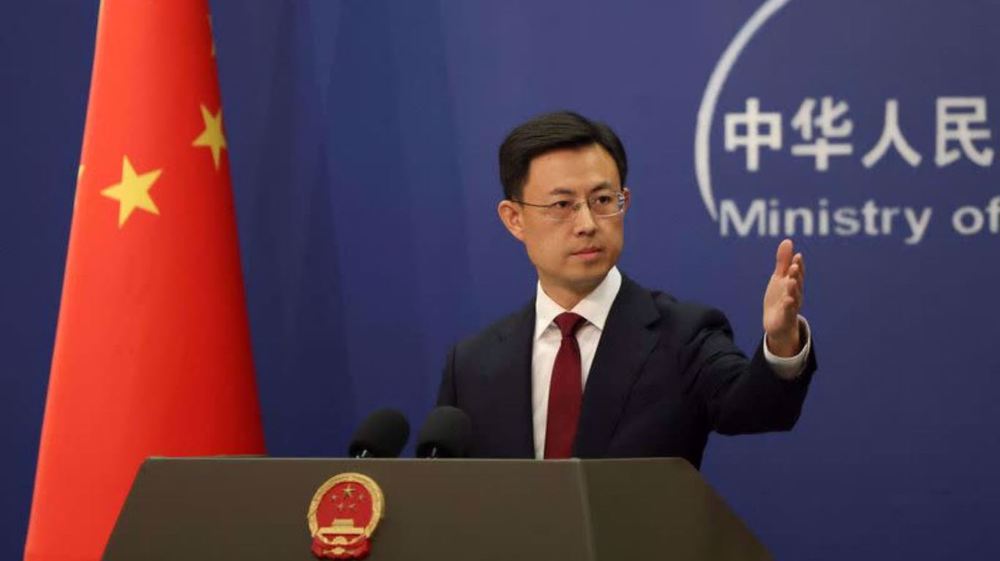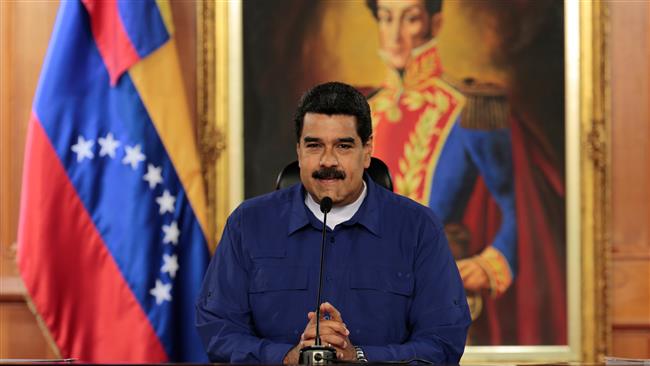Venezuela’s Supreme Court takes over legislative functions of parliament
Venezuela’s Supreme Court has taken over the legislative functions of the country’s parliament after ruling that the legislature is in contempt of court.
“As long as the National Assembly’s contempt of court and invalidity persist, parliamentary powers shall be exercised directly by [the Supreme Court’s] constitutional chamber or by the body it stipulates to safeguard the rule of law,” the Supreme Court announced in a ruling.
The court had ruled in August 2016 that the opposition majority in the National Assembly was in contempt for swearing in three lawmakers from the southern Amazonas State who had already been suspended over electoral fraud and vote-buying accusations.
The latest Supreme Court ruling is almost certain to worsen the political tensions gripping the South American country, where President Nicolas Maduro is facing fierce attempts by the opposition to force him from power.
The Supreme Court’s ruling came a day after it stripped lawmakers of their legislative immunity, clearing the way for them to face prosecution.
The main opposition coalition, the Democratic Unity Roundtable, won a landslide in legislative elections in December 2015 with a promise to oust Maduro from power. That forced Maduro and his United Socialist Party of Venezuela into sharing power for the first time since its founder, Hugo Chavez, surged to power in 1999.
Maduro has accused opposition lawmakers of treason for asking the Washington-based Organization of American States (OAS) to consider suspending Venezuela from the bloc.
In reaction to the Supreme Court’s ruling, the United States described the move as an effort to “usurp the powers” of the parliament.
The secretary general of the OAS, Luis Almagro, also accused Maduro’s government of carrying out a “self-coup.”
Peru also recalled its ambassador from Caracas in protest and promised to step up efforts to eject Venezuela from the OAS for what it called a “flagrant breach of the democratic order.”
Other regional powers such as Mexico, Brazil, and Argentina also warned that the de facto annulment of the Venezuelan parliament could be a threat to democratic governance in the country.
Venezuela’s Foreign Ministry accused the governments critical of Caracas of forming a "right-wing regional pact" against Maduro, who has called the OAS a pawn of US “imperialism.”

In the December 2015 elections, in which Maduro lost control of the parliament, voters displayed their anger at soaring inflation, rising poverty, and severe shortages of medicine and basic commodities that have been going on in the country since before those polls.
Venezuela has the world's largest proven oil reserves.
Since then, relations between the executive and legislative bodies have been stuck in tensions.
Last year, the opposition launched an abortive attempt to force Maduro from power by seeking to hold a recall referendum.
The opposition has now called on Venezuelans to take to streets in rallies to oppose the recent ruling by the Supreme Court, which is allied to Maduro.

China condemns US decision to punish Venezuelan oil importers

532,000 migrants face deportation after Trump revokes protections

'Brazen theft': Venezuela raps US seizure of plane after high-level talks
Rights groups demand arrest warrant for Israeli FM visiting UK over Gaza war crimes
Non-nuclear issues not on Iran’s agenda for talks with US: Deputy FM
Israel 'choosing to seize territory' rather than release captives: Families
VIDEO | US capital reeling socioeconomically from Trump’s drastic changes
VIDEO | Press TV's news headlines
VIDEO | Paris rally condemns Israel, decries killing of Palestinian journalists
VIDEO | Italy's Meloni visits US to discuss Trump's tariffs as EU unity at risk
VIDEO | Syria under HTS












 This makes it easy to access the Press TV website
This makes it easy to access the Press TV website